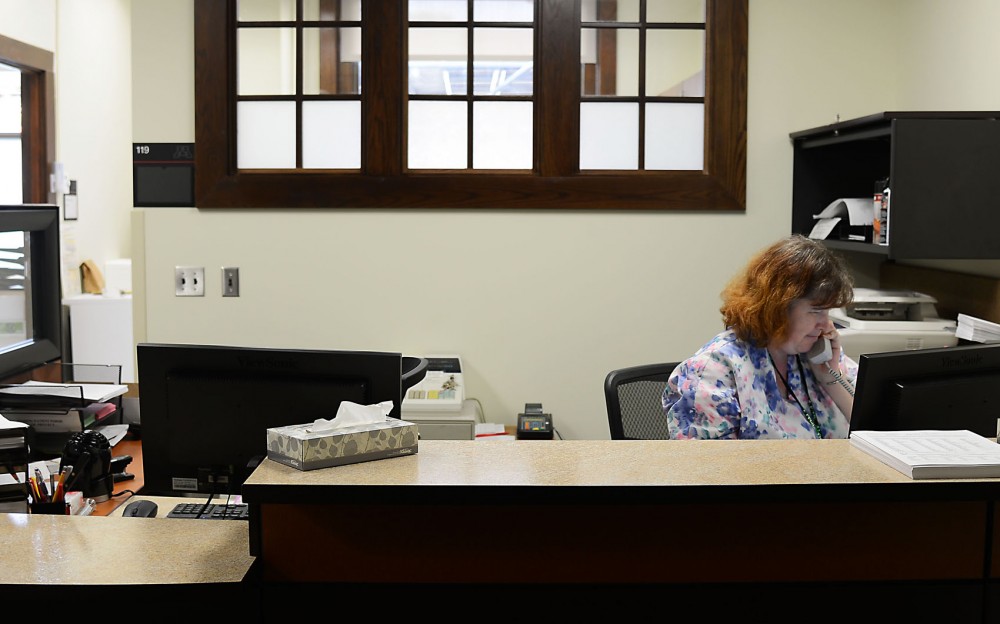A University of Minnesota task force released a report Thursday with more than 100 recommendations for instructors and administrators to structure their courses to support student mental health.
In a 26-page report, the task force outlined suggestions encouraging faculty to pace coursework and interact with students exhibiting signs of mental illness, among other recommendations, in hopes campus-wide changes will follow.
Instructors, University officials and students formed the Joint Taskforce on Student Mental Health last year in response to rising concerns around faculty response to student mental health.
Still, faculty will require additional training, like workshops, before making adjustments.
“We’re recommending that faculty take advantage of lots of opportunities that already exist and then suggesting that there be more of these opportunities made,” said task force co-chair and University biology professor Sue Wick.
Preventative care
The report asked professors to adopt practices that reduce stress, like distributing class points across more course material, diverging from previous efforts to increase counseling and treatment services for mentally ill students, said task force co-chair and Boynton Health Chief Medical Officer Gary Christenson.
“Instructors are pretty much on the front line,” he said. “We’re not asking instructors to be mental health professionals, but … we feel that everyone has the ability to decrease stigma and to provide a supportive environment.”
About one-third of students on the Twin Cities campus have been diagnosed with a mental illness, which can hinder student learning, according to the report.
The recommendations come amid increased attention nationwide on providing faculty tools to intervene before a student is in crisis, said Nance Roy, clinical director of The JED Foundation, a national nonprofit focused on young adult mental health and suicide prevention.
“It’s about someone who’s in your world on a regular basis, caring enough to reach out and make a connection,” she said. “If a student reveals an issue that may require professional help, then you have the language or you know who to call.”
‘A balancing act’
The report outlined 13 guidelines for mitigating academic stress, including using sensitive language on the topic of mental illness, giving sufficient time to complete tests and empathizing with students who are juggling multiple deadlines.
Still, instructors aren’t expected to compromise academic rigor, Wick said.
“I think there may be some people who aren’t going to like some of the recommendations and may think this is imposing too much on them, but to me it’s a balancing act,” she said.
The report also reinforced that instructors must assist students with Disability Resource Center accommodation letters, which has been a point of confusion for many faculty, Christenson said.
Disability accommodations are misunderstood nationwide, Roy said.
“[The movement is] in its infancy stages,” she said. “[Accommodations] aren’t just extended time on tests or alternative test arrangement. Oftentimes they’re far more subtle … and not as easy to figure out and implement.”
Institutional support
University departments can inform instructors about how to help students, the report says.
But effective change requires administrative action, Roy said.
The task force is asking University administrators to strengthen policies related to mental health, including allowing priority class registration for disabled students, requiring disability training for instructors and eliminating late-night exams.
Task force members recommended the 12-year-old Provost’s Committee on Student Mental Health review the report, Christenson said. They also recommend increased funding and adding faculty leaders to the committee.
“We think the committee could have an elevated role, really given more empowerment to advance mental health efforts on campus,” he said.
Going forward, Wick said she hopes the report will lead to lasting change at the University.
“We can’t just let this be a paper that sits on the shelf and gathers dust,” she said. “We really will be pushing in whatever way we can to make sure this doesn’t just die.”

















